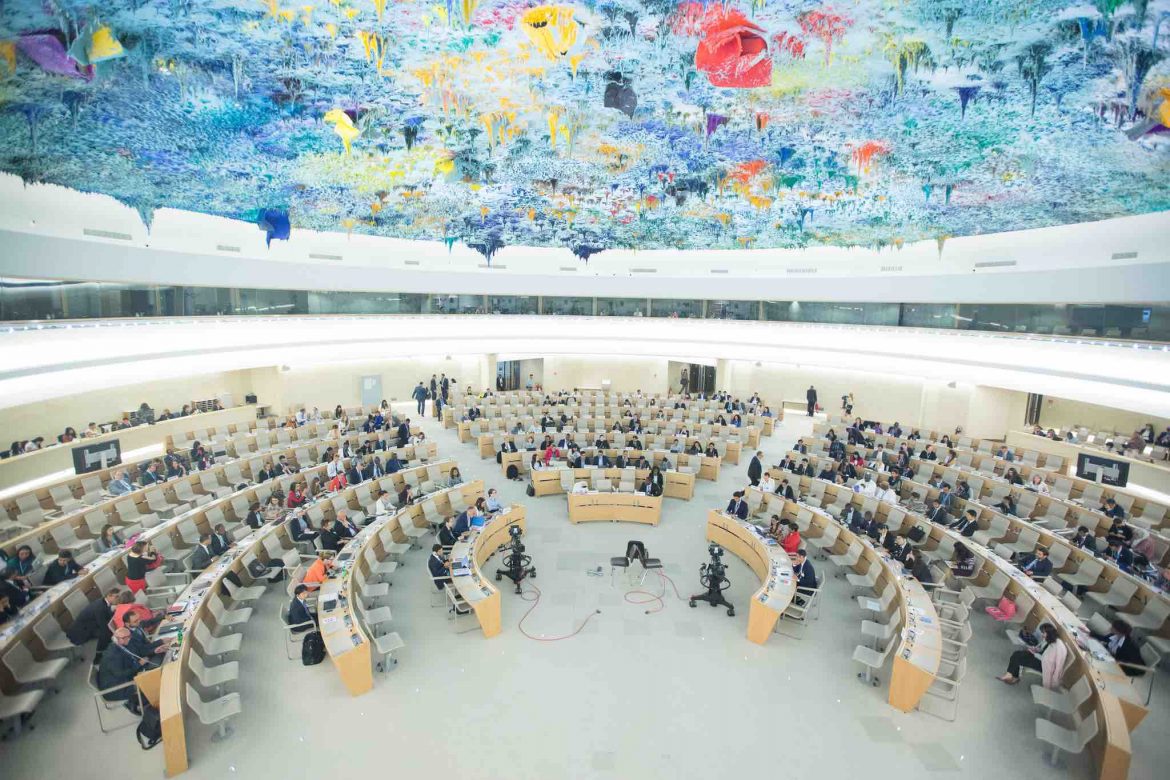CIHRS at the United Nations Human Rights Council - 39th Session:
UN renews historic investigations into Yemen war crimes despite Saudi threats
The 39th session of the United Nations Human Rights Council was held September 10-28, 2018 in Geneva, Switzerland. The Cairo Institute for Human Rights Studies (CIHRS) engaged with the Council on five countries: Yemen, Palestine, Libya, Syria and Egypt.
The advocacy of CIHRS and its Yemeni partner organization, Mwatana for Human Rights, contributed to a renewed mandate for the Group of Eminent Experts (GEE) on Yemen, representing a significant step towards justice for Yemeni victims of war crimes and human rights abuses. The mandate’s renewal will allow the GEE to continue conducting impartial and independent investigations into violations of international law by all parties to the conflict in Yemen. As part of its advocacy for a renewed and strengthened GEE, CIHRS co-sponsored two side events: “Yemen: Millions of Civilians at Risk: Human Rights Council must Renew and Strengthen the Group of Eminent Experts on Yemen,” and “Accountability and the Need to End Impunity for Human Rights Violations in Yemen: Human Rights Defenders including Bloggers, Internet Activists and Journalists at Extreme Risk of Persecution.”
On Palestine and Libya, CIHRS’ advocacy underscored the need for perpetrators of violations to be held accountable and for civilians and victims of violations to be protected in both countries. CIHRS joined Palestinian partner organization Al-Haq to emphasize the need for action on the UN Database on businesses operating in Israeli settlements, established three years ago. CIHRS also urged the Commission of Inquiry (CoI) established last year to focus on identifying individuals culpable for the killing of hundreds of unarmed protesters during the 2018 protests in the Occupied Palestinian Territory. With hundreds of civilian casualties in Libya in the last few months alone as a result of the ongoing fighting between militias, CIHRS addressed the Council about the need to do more to deter violations of international law in what has been described by the OHCHR as a lawless state.
CIHRS continued to engage with states to ensure the human rights crisis in Egypt was again raised strongly by governments before the Council. Several countries raised attacks against human rights defenders and other serious violations in Egypt within their interventions before the Council, including a European Union statement highlighting the repression of freedom of expression, association, assembly and attacks against human rights defenders.
Yemen
During the 39th Human Rights Council, CIHRS in collaboration with Yemeni partner organization Mwatana for Human Rights, advocated for the renewal and strengthening of the existing mandate of the Group of Eminent Experts (GEE) on Yemen. The GEE was established last year to conduct independent and impartial investigations into violations of international law by all parties to the ongoing conflict in Yemen. The situation in Yemen remains “the worst humanitarian disaster in the world” and in some areas, the situation in Yemen is worsening. In response, 55 civil society organizations jointly published a statement prior to the beginning of the Council session, highlighting the need for continued investigations in Yemen and the need to end the culture of impunity enjoyed by all parties to the conflict. This message was echoed through a joint oral intervention by CIHRS and Mwatana for Human Rights in a general debate with the High Commissioner.
The report of the GEE, published on 28 August 2018, pointed to the fact that all parties to the conflict in Yemen may be responsible for war crimes and other serious crimes under international law. The GEE report also highlighted the little time that it had in monitoring and documenting violations on the ground in Yemen.
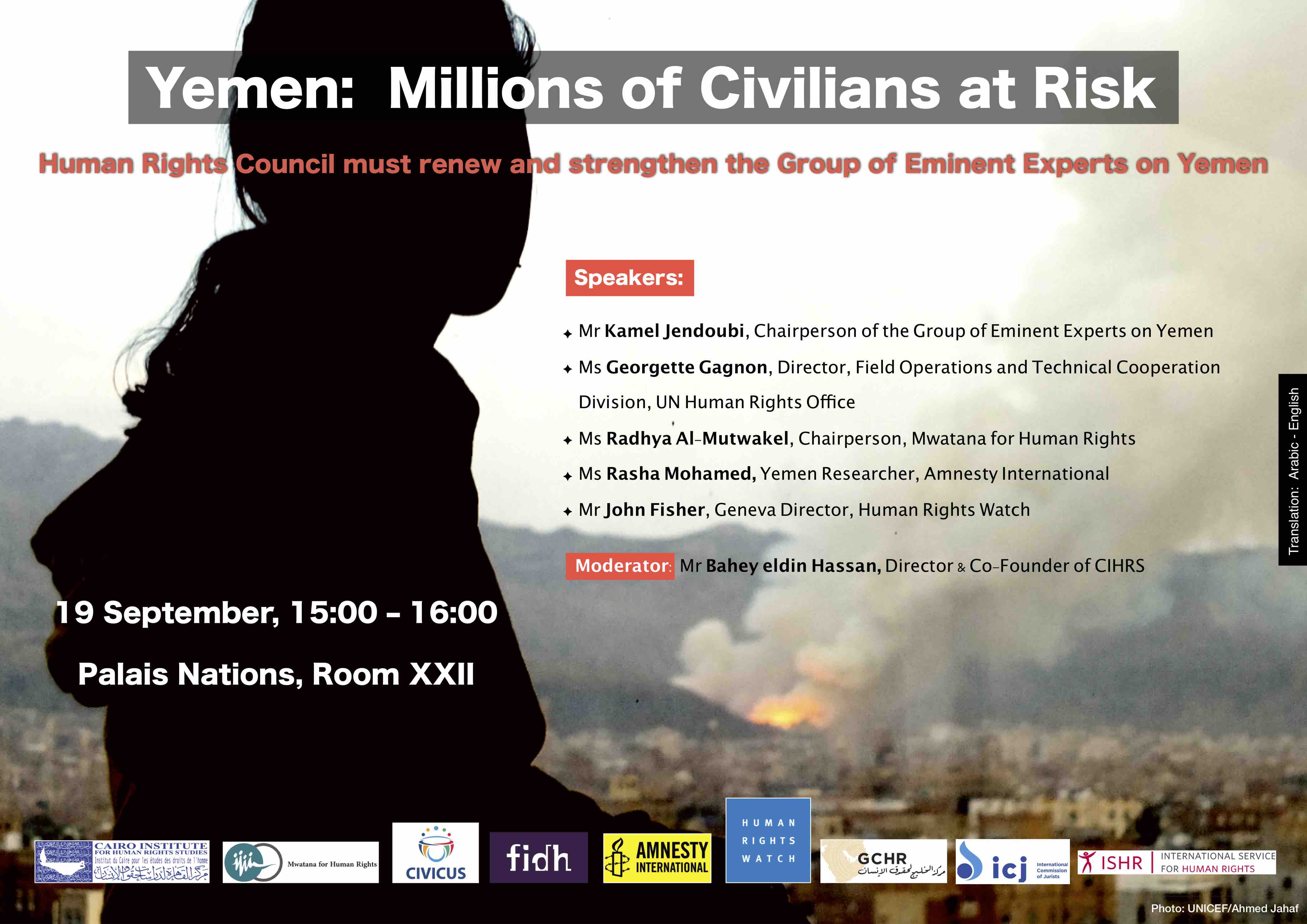
In a side-event, entitled “Yemen: Millions of Civilians at Risk. Human Rights Council must Renew and Strengthen the Group of Eminent Experts on Yemen,” the chairperson of the GEE, Mr Kamel Jendoubi, spoke on panel and confirmed the need for further time to look into all crimes committed in Yemen starting September 2014 as per its mandate. In the same side-event, the Office of the High Commissioner confirmed its strong support for the Group of Eminent Experts and the need for them to continue their work.[1]
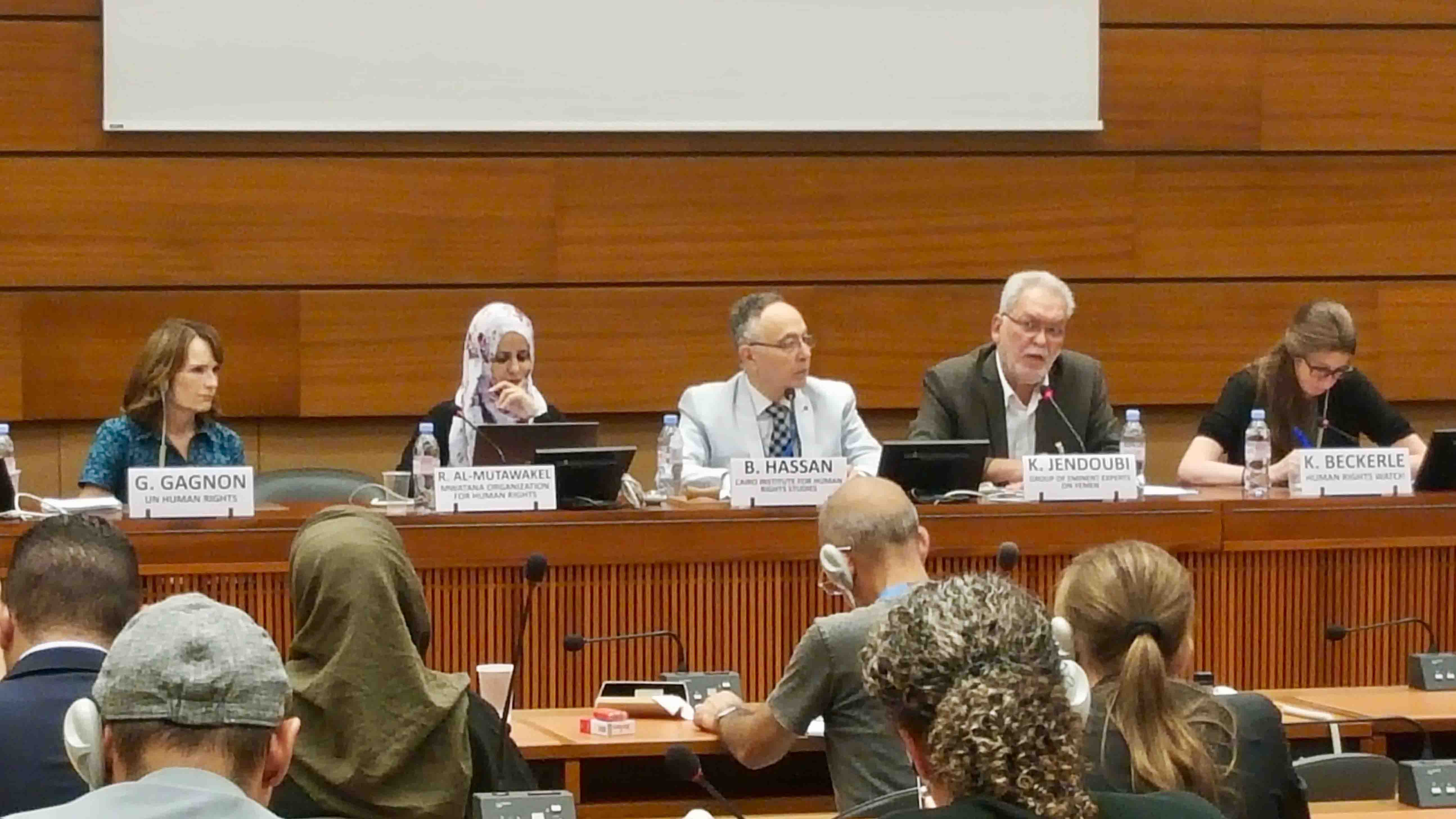
A mapping of the main actors in the conflict in Yemen was published in the GEE report, with a view towards international accountability. Meaningful and effective accountability for perpetrators of crimes in Yemen will only be achieved with the extension of the GEE’s mandate, and with strengthening it further in the future.
Saudi Arabia and the United Arab Emirates were particularly opposed to the renewal of the existing GEE’s mandate. Accordingly, the Arab Group, which has penmanship over the Yemen resolution establishing the GEE last year, stripped away any reference to the GEE’s mandate and its renewal in an edited draft resolution. The text only took note of the GEE report. This prompted a “core group” of five States,[1] which had pressured Saudi Arabia and the United Arab Emirates to establish the GEE last year, to submit a parallel draft resolution renewing the existing mandate of the GEE, allowing it to continue its vital work. In the adoption of this resolution, the HRC voted in favor of extending the GEE’s mandate, with a strong majority of 21 yes votes, and only 8 states voting against. While Saudi Arabia and the United Arab Emirates opposed this resolution, many States stood strong in defense of the HRC’s legitimacy to protect victims of human rights abuses and voted in favor of the resolution – these including the Netherlands, Canada, Belgium, Ireland and Luxemburg. In light of this decision, it is important that all stakeholders engage in good faith with the GEE and allow them to continue their work towards accountability for alleged war crimes in Yemen.
[1] The “core group”: Belgium, Canada, Ireland, Luxembourg and the Netherlands.
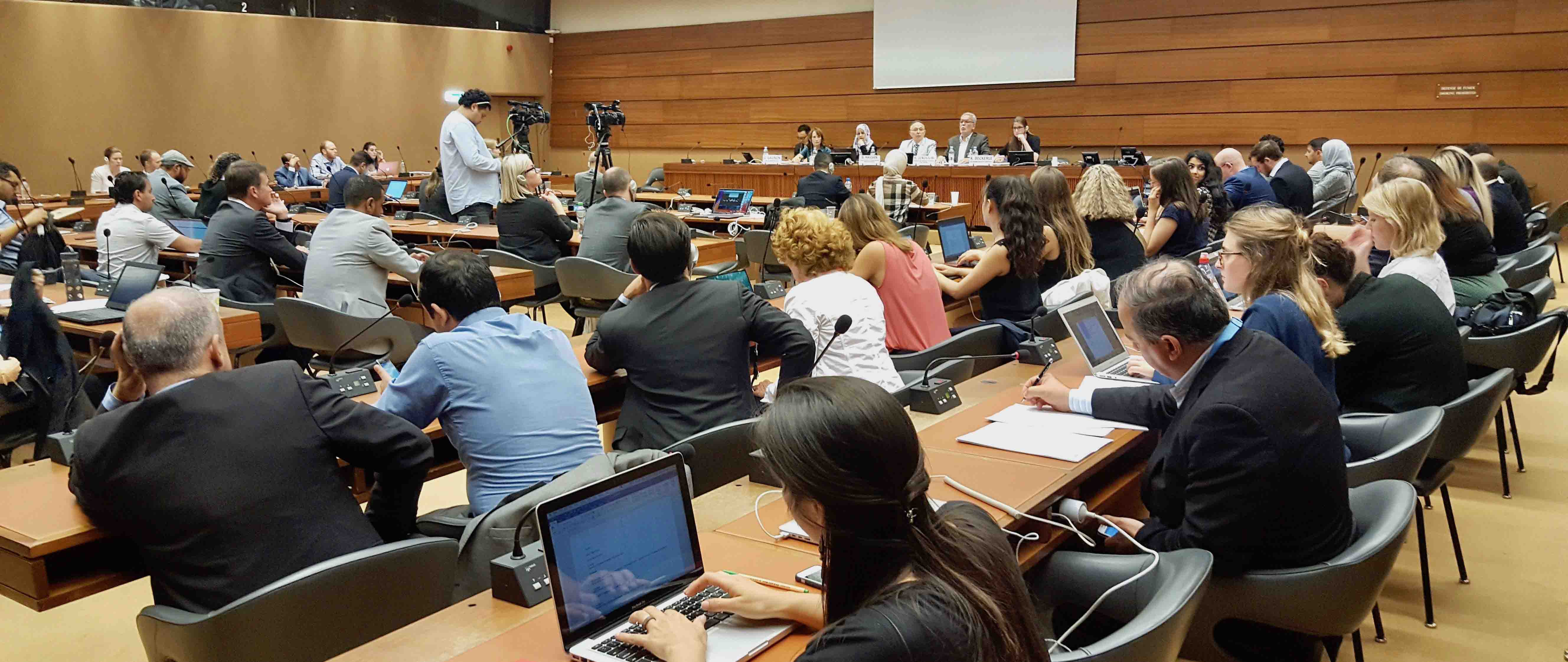
CIHRS co-sponsored a side-event on the protection of human rights defenders in Yemen and elsewhere entitled “Accountability and the Need to End Impunity for Human Rights Violations in Yemen: Human Rights Defenders including Bloggers, Internet Activists and Journalists at Extreme Risk of Persecution.” Reprisals are taken seriously by the UN, as per a statement of an assistant to the secretary general. Human rights defenders and representatives of civil society organizations that participated in the Human Rights Council must be protected both before and following their engagement with the Council, particularly when repressive governments such as Saudi Arabia and the United Arab Emirates are involved. With the renewal of the GEE’s mandate, eyes will be on all parties to the conflict in Yemen, particularly with regards to their targeting of human rights defenders and civilians.
Palestine
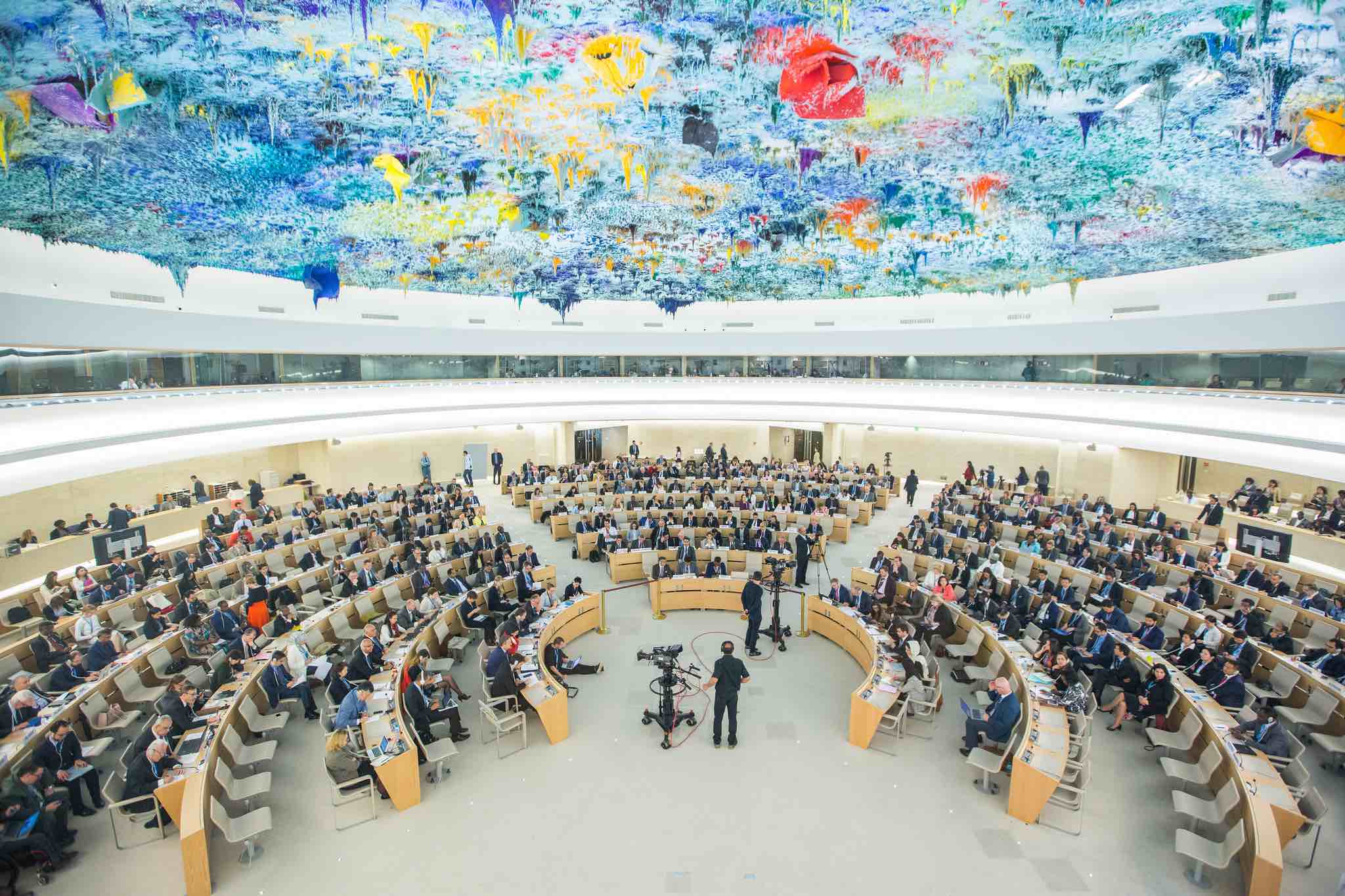
Human Rights Council special session on the situation in Palestine :Photo by UN Geneva
CIHRS joined Al-Haq this HRC session in an oral intervention in the general debate under agenda item 7. The oral intervention focused primarily on the Office of the High Commissioner for Human Rights and the need for them to move forward with work on the UN Database on businesses operating in Israeli settlements. It has been three years since the resolution establishing the UN Database – it is therefore essential for the OHCHR to transmit its information publicly through an interactive mechanism, including the names of those corporations that blatantly disregard international law and choose to continue their operations in the settlements. Transparency is required for this mechanism to be effective.
Following an oral update by the recently appointed chairperson of the Commission of Inquiry on the 2018 protests in the Occupied Palestinian Territory (CoI), Mr Santiago Canton, CIHRS delivered an oral intervention urging the CoI to focus in its investigations on identifying individuals, both in command and at a lower level, responsible for policies and practices that resulted in the killing of hundreds of unarmed protesters
Libya
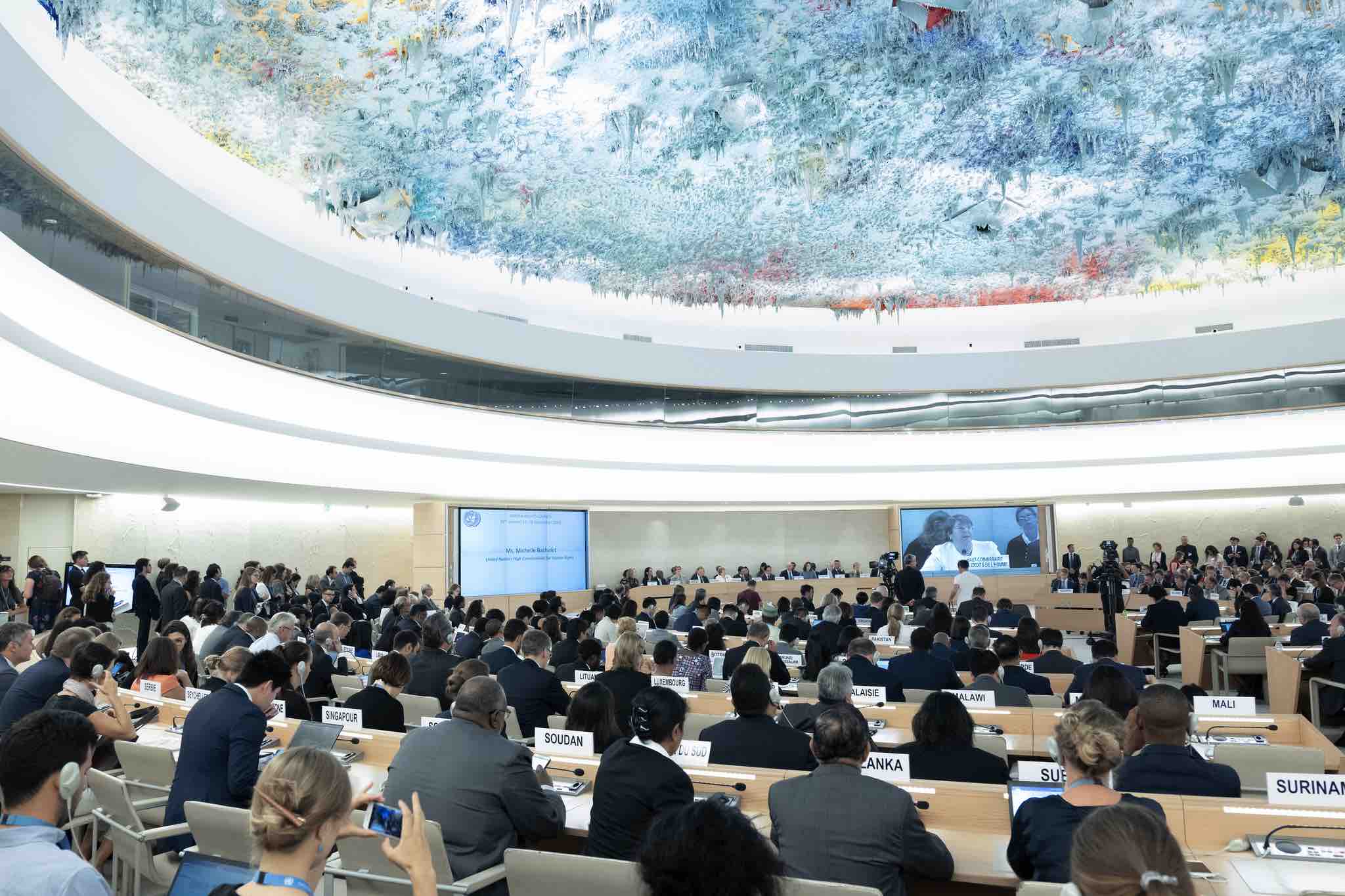
Human Rights Council 39th regular session :Photo by UN Geneva
CIHRS engaged on Libya during the 39th session of the HRC. Following an oral update by the High Commissioner on the situation in Libya, CIHRS addressed the Council with concern that more could have been done by the Council this year in attempts to deter further violations of international law on the ground in Libya. These past few months have seen hundreds of civilians killed or injured due to ongoing fighting between militias in what has been described by the OHCHR as a lawless State.
Share this Post

